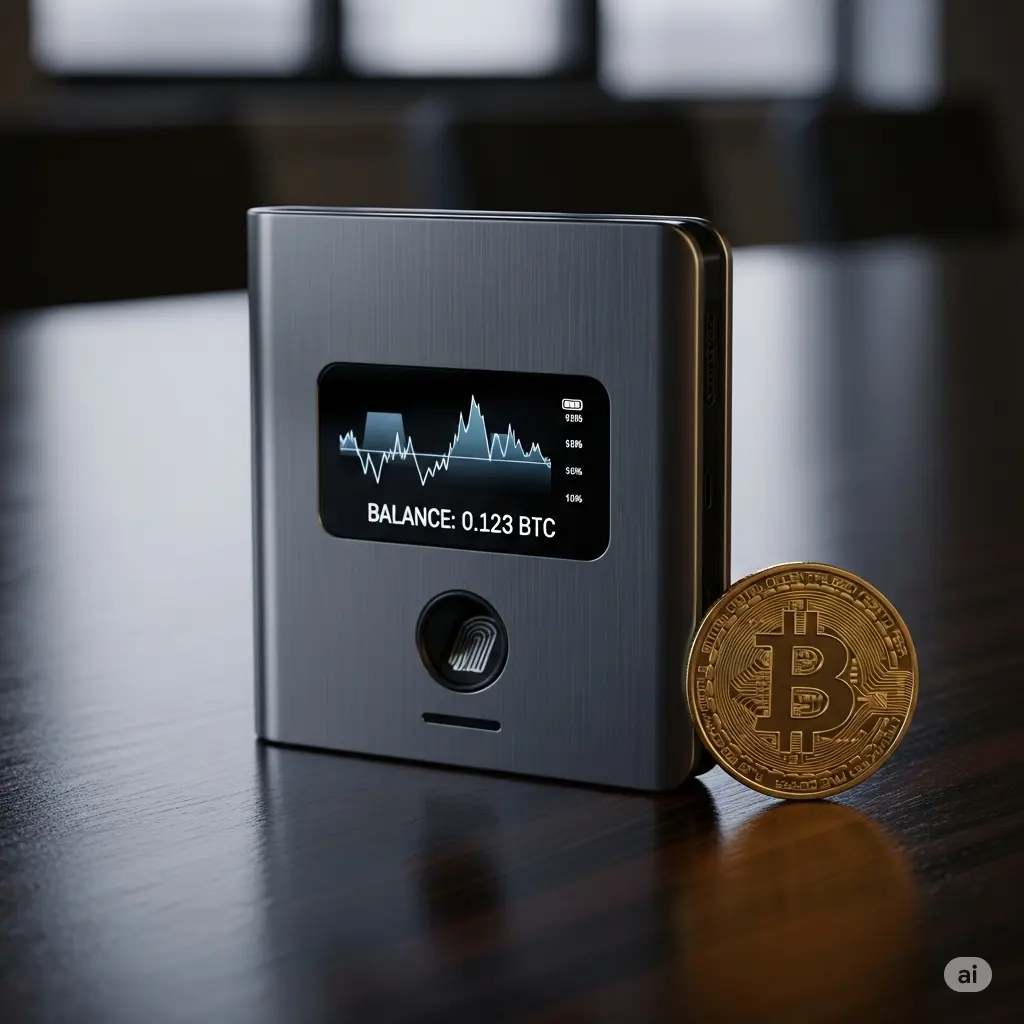Unbelievable Secure Crypto Wallet Protection Now at Your Fingertips
Cryptocurrencies are soaring in popularity and mainstream use. Now, more people than ever hold digital assets. This brings a surge in interest around crypto wallet security. The title Unbelievable Secure Crypto Wallet Protection Now at Your Fingertips catches attention because as theft and hacks rise, users need powerful tools that protect funds. A Secure Crypto Wallet keeps your investments safe and accessible. Global Crypto Sports readers care about this because crypto is not just for techies anymore—it fuels sports, streaming, gaming, and more. As interest grows in Web3, sports fans exploring decentralized platforms must understand how to protect assets. This trend makes the topic urgent.

What Is a Secure Crypto Wallet?
A crypto wallet is a tool that stores cryptographic keys. Those keys allow you to send, receive, and manage cryptocurrencies. They do not store the currency itself that lives on the blockchain. A Secure Crypto Wallet ensures your keys are guarded against hacks, theft, and data loss.
Key Slot: What Are Blockchain, DeFi, and Web3?
- Blockchain: A digital ledger that records transactions in secure blocks. It’s the backbone of all cryptocurrencies.
- DeFi (Decentralized Finance): Financial services like lending, borrowing, and trading without traditional banks, powered by blockchain.
- Web3: A vision of the decentralized internet, where you control your data, identity, and digital assets.
These terms matter when discussing wallet security. A hacked wallet could compromise your participation in DeFi projects or Web3 platforms.
Why Wallet Security Matters Today
- Rising Cybercrime: Hackers target crypto wallets as their value grows.
- Regulation and Awareness: Institutions and governments push for secure practices.
- Evolving Tech: New wallet tech offers stronger protection than ever.
- Beginner Influx: New users need easy yet secure wallet solutions.
As interest grows across communities like Global Crypto Sports, awareness of wallet protection has never been more critical.
Types of Crypto Wallets
Let’s break down wallet types. Each has unique security features.
Cold Wallet vs. Hot Wallet
- Cold Wallet
- Offline wallets that never connect to the internet.
- Their air-gapped nature makes them highly secure.
- Common form: hardware wallet.
- Hot Wallet
- Online wallets are connected to the internet.
- Extremely convenient for trading and DeFi access.
- Higher risk of online threats.
Many experts recommend using both—a cold wallet for long-term storage and a hot wallet for active funds.
Hardware Wallet (Cold Wallet)
A hardware wallet is a physical device. It stores your private keys offline. It only connects when you authorize transactions.
Advantages:
- Strong protection from malware and phishing.
- Easy PIN access.
- Can support multiple coins.
Disadvantages:
- Initial cost (but budget‑friendly in the best crypto wallet 2025 category).
- Device loss or damage.
Example:
A Crypto Athlete used a hardware wallet after losing funds in a phishing attack. The hardware wallet prevented further loss and allowed recovery with a secure wallet backup.
Software Wallet (Hot Wallet)
Software wallets run on smartphones or computers. They offer top convenience.
Types:
- Mobile wallet
- Desktop wallet
- Web wallet
Advantages:
- Fast access.
- Great for daily transactions and DeFi apps.
Disadvantages:
- Vulnerable to hacking.
- Requires careful software and device security.
Mobile Wallet
A mobile wallet is a type of hot wallet on your smartphone. Examples include Trust Wallet and MetaMask Mobile.
Pros:
- Easy use on the go.
- Often supports QR codes and connectors for Web3 apps.
Cons:
- Risk if your phone is compromised.
- App or OS bugs could expose keys.
Decentralized Wallets: Freedom with Responsibility
A decentralized wallet gives you full control over your keys. There’s no central authority to recover your wallet if you lose access. That empowers you—but also raises responsibility.
Tips:
- Always secure your wallet backup phrase or seed.
- Consider splitting backups in different safe places.
- Use hardware plus a decentralized software layer for the best security.

Real‑World Case Studies
Case Study 1: The Phishing Disaster
A user clicked a fake email link. They entered credentials on a scam site. Funds vanished. They had been using a hot wallet with no backup. This shows:
- Hot wallets are vulnerable.
- Always verify URLs.
- A hardware wallet with backup mitigates loss.
Case Study 2: Sports NFT Scam
A sports fan used a wallet to buy athlete NFTs. They trusted a shady wallet app. Scam app mirrored their seed phrase. They lost NFTs and funds. They recovered nothing. Lesson:
- Use reputable wallets.
- Avoid random wallet apps.
- Check reviews, reviews by communities like Global Crypto Sports.
Case Study 3: Cold Wallet Saves the Day
A Global Crypto Sports editor locked valuable tokens in a hardware device. A hack attempt via email phishing occurred later. The hardware wallet prevented access. Backup allowed recovery. Result: funds safe.
Benefits, Pros & Cons of Each Wallet Type
| Wallet Type | Benefits | Cons |
|---|---|---|
| Cold Wallet | High security, offline, ideal for long‑term hold | Cost, physical loss risk, less convenient |
| Hot Wallet | Fast, great for DeFi and trading | Higher attack risk, device‑dependent |
| Hardware Wallet | Cost, physical loss risk, and less convenient | Similar to a cold wallet; very secure |
| Mobile Wallet | Convenient, supports Web3, accessible | Phone vulnerabilities, malware, theft |
| Decentralized Wallet | Full control, no central authority | You manage everything; loss = no recovery |
Risks to Watch
- Phishing Links: Fake emails or sites designed to steal keys.
- Device Malware: Keyloggers or mobile viruses.
- Lost Backup: No recovery if the phrase is gone.
- Scam Wallet Apps: Apps that harvest keys.
- Human Error: Mistyping addresses, copying the seed incorrectly.
Actionable Advice for Beginners & Intermediate Investors
- Prioritize a Secure Crypto Wallet:
- Use hardware wallets (a good “best crypto wallet 2025” choice).
- Research popular brands and read community reviews (e.g., on Global Crypto Sports).
- Use Cold + Hot Wallet Strategy:
- Store main funds offline.
- Keep small amounts in a hot wallet for trading or DeFi.
- Implement a Proper Wallet Backup:
- Write the seed phrase on paper or engrave it.
- Store copies in separate safe places (e.g., safe deposit box).
- Stay Vigilant Against Phishing:
- Always check URLs.
- Never click email links—prefer manual entry.
- Bookmark official wallet login pages.
- Maintain Device Hygiene:
- Keep software updated.
- Install a reputable antivirus.
- For mobile, use app stores only.
- Choose Reputable Wallets:
- Look for hardware brands with a proven track record.
- Verify open-source code or community trust.
- Review discussions on Global Crypto about wallet reliability.
- Beginner Tips:
- Start small: test deposits before larger transfers.
- Practice sending and receiving.
- Confirm you understand the backup process before sending substantial funds.
- Intermediate Tips:
- Consider multi‑signature setups.
- Use passphrase encryption on hardware wallets.
- Split backups geographically.
Frequently Asked Questions (FAQ)
1. What’s the best crypto wallet for absolute security?
The best is a hardware wallet stored offline with an encrypted seed phrase backup. Use a reputable brand known for strong crypto wallet security.
2. Should I use a cold wallet, a hot wallet, or both?
Use both. Store long-term holdings in a cold/hardware wallet. Use a hot/mobile wallet for everyday transactions and DeFi.
3. What is a decentralized wallet, and is it safe?
A decentralized wallet gives you full control of keys and operates without a central authority. It can be very safe—if you manage your backup and avoid scams.
4. How do I keep my mobile wallet safe?
- Use official app stores only.
- Enable a strong PIN or biometric lock.
- Keep OS and apps updated.
- Beware of fake apps and always verify developer names.
5. What if I lose my wallet backup?
Without backup, you lose access permanently. Always create multiple backups in secure locations like a safe or a safe deposit box.
6. Are hardware wallets worth the cost?
Yes. They provide top-tier crypto wallet security and are considered among the best crypto wallets for 025. Their safety outweighs their modest price.
7. How do I avoid phishing when using a wallet?
Never click email links. Always verify the website URL manually. Use bookmarks. Check sender email addresses. Enable 2FA where possible.
Bold Tips (Visual Emphasis)
- Always back up your wallet seed phrase.
- Use hardware wallets for long-term storage.
- Split your backup into safe, separate locations.
- Test with small amounts before large transfers.
- Stay updated with wallet app versions and security news (Global Crypto Sports often shares updates).
- Ask: “Is this wallet trusted by the community?” before using.
Global Crypto Sports and Wallet Security
Our platform, Global Crypto Sports, consistently publishes news and reviews related to wallet security. We cover topics like new hardware wallet releases, major hacks, DeFi platform safety, and guide readers on crypto wallet security best practices. Stay updated with our expert coverage for trusted insights.
Conclusion: Secure Crypto Wallet Protection Is Within Reach
Today, securing your crypto assets is both urgent and accessible. You now know what a Secure Crypto Wallet means, the differences between wallet types (cold, hot, hardware, mobile), and why you must use strong wallet backup and anti‑phishing practices. Real‑world examples show how scams hit vulnerable setups—and how hardware wallets can stop digital disasters.
To move forward:
- Choose a reputable hardware wallet and use it.
- Backup your seed phrase in multiple, secure spots.
- Combine cold and hot wallets wisely.
- Stay vigilant against scams.
- Visit Global Crypto Sports for reliable updates and wallet comparisons.
Don’t let your crypto dreams vanish to hackers. Harness these tools. Protect your holdings. And share this guide with friends starting their crypto journey.
